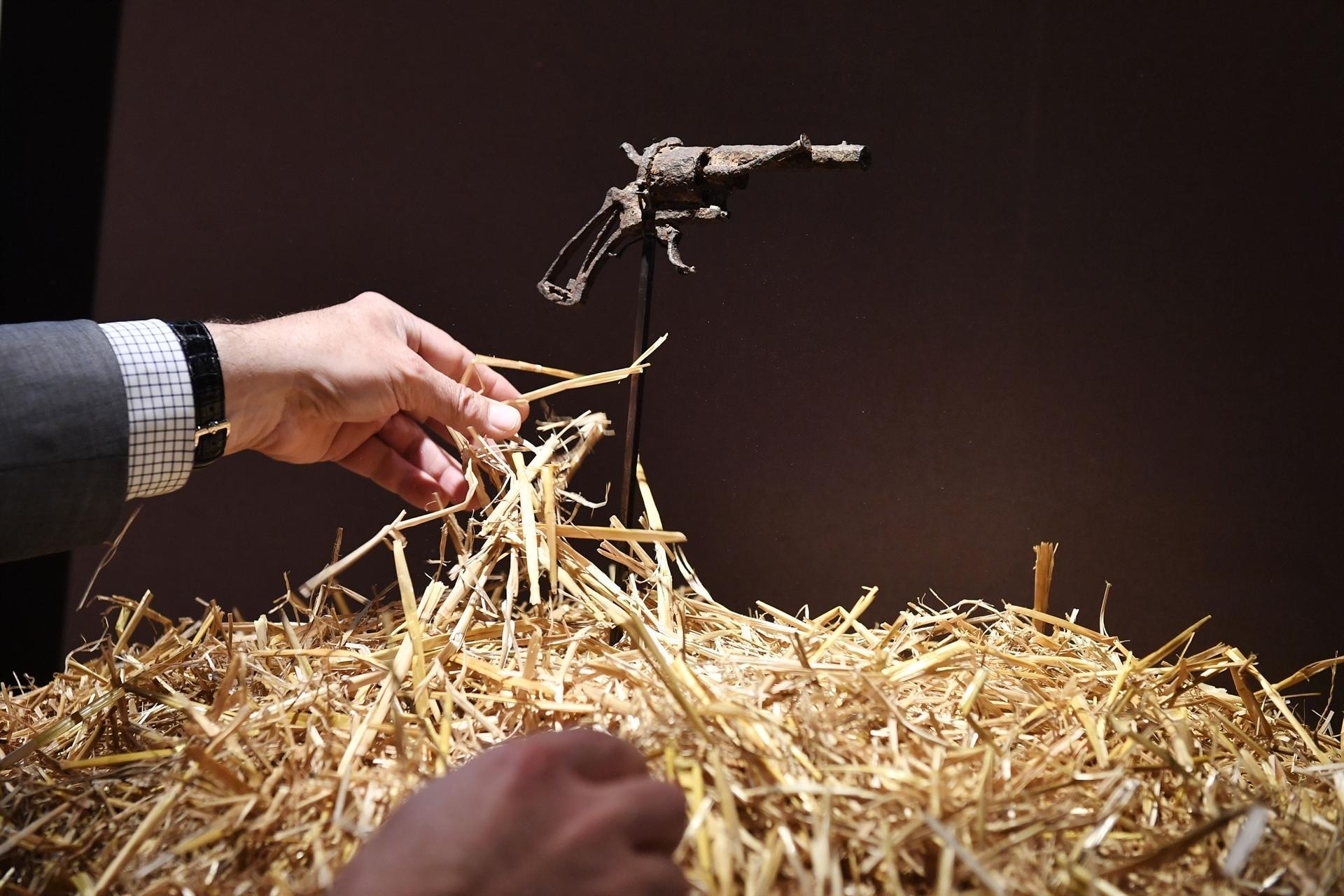
The revolver with which Vincent van Gogh is believed to have shot himself sold for 162,500 euros at a Paris auction on June 19 nearly three times the estimate.
Billed as "the most famous weapon in the history of art," the rusty 7mm Lefaucheux revolver was bought by a private collector with a telephone bid.
The troubled Dutch painter died in July 1890 and experts believe he shot himself with the revolver in a field near Auvers-sur-Oise, a village north of Paris where he spent the last few months of his life.
Discovered by a farmer in 1965 in the same field, the gun has previously been exhibited at the Van Gogh Museum in Amsterdam. But the sale was hit by controversy on the eve of the auction as the Van Gogh Institute, which looks after the village inn where the artist spent his last days, condemned the sale.
"Nothing suggests that the remains [of the gun] are formally linked with the death of Van Gogh," it said in a statement, deploring the "commercialization of a tragedy which deserves more respect."
While Art Auction, which sold the gun, said there is no way of being absolutely certain it is the fatal weapon, they insisted tests showed it has been in the ground for 75 years, which would fit.
The Dutch artist had borrowed the gun from the owner of the inn. He died 36 hours later after staggering back wounded to the inn in the dark.
The bullet extracted from Van Gogh's chest was the same calibre as the one used by the Lefaucheux revolver.
Nor was it his first dramatic act of self-harm. Two years earlier, he cut off his ear which he offered to a woman in a brothel in Arles in southern France.
Auction Art said the farmer who found the gun in 1965 gave it to the former owners of the inn at Auvers-sur-Oise, whose family are now selling it.
"Technical tests on the weapon have shown the weapon was used and indicate that it stayed in the ground for a period that would coincide with 1890," it said. "All these clues give credence to the theory that this is the weapon used in the suicide."
While most art historians agree Van Gogh killed himself, that assumption has been questioned in recent years, with some claiming the fatal shot may have been fired accidentally by two local boys playing with the weapon in the field.